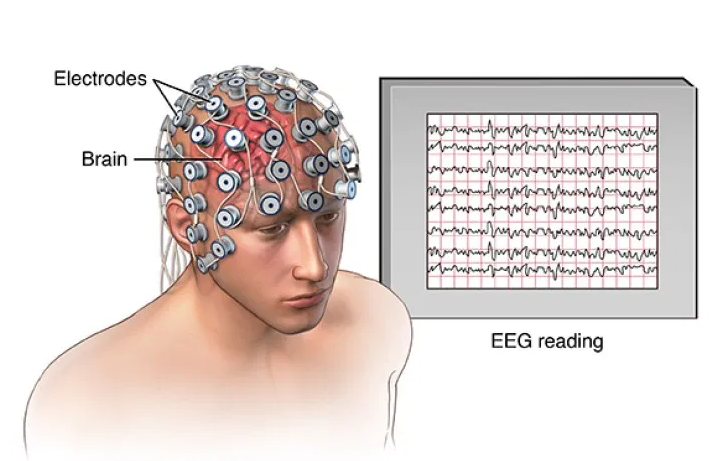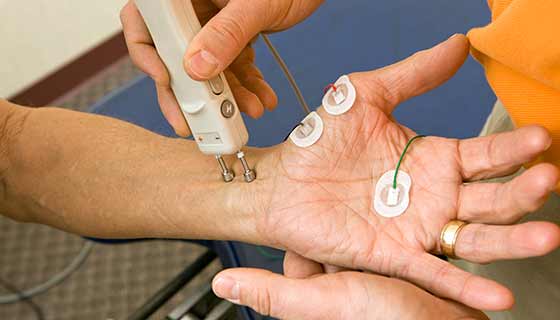

EEG | EMG | NCV TESTS IN AHMEDABAD | DR. BARAD's CLINIC
WHAT IS AN EEG?
An Electroencephalogram (EEG) is a test that detects abnormalities in your brain waves, or in the electrical activity of your brain. During the procedure, electrodes consisting of small metal discs with thin wires are pasted onto your scalp. The electrodes detect tiny electrical charges that result from the activity of your brain cells.
The EEG is used to evaluate several types of brain disorders. When epilepsy is present, seizure activity will appear as rapid spiking waves on the EEG. The test can also be used to diagnose other disorders that influence brain activity, such as Alzheimer’s disease, certain psychoses, and a sleep disorder called narcolepsy.
THINGS TO DO PRIOR TO EEG
- Wash your hair thoroughly with Shampoo on day of EEG.
- Don’t put oil in your hair or any cream or chemical after washing your hair on the day of EEG.
- If by mistake you have put oil or any cream, then re wash your hair and dry it before you come for this test.
- If you are advised Sleep Deprived EEG, then go to sleep 2 hrs late and wake up 2 hrs early than your usual sleep timing and come straight to clinic at around 10 am in morning with having heavy breakfast around 9 am.
ELECTROMYOGRAPHY (EMG) AND NERVE CONDUCTION VELOCITY (NCV) TESTS
Electromyography (EMG) and nerve conduction velocity (NCV) are electrodiagnostic tests that measure the electrical activity of muscles and nerves. These tests may be an important part of a spine patient’s work-up by their doctor. Besides back pain or neck pain, some patients with a spine-related problem report unexplained symptoms, numbness and/or tingling sensations, muscle cramping, or weakness in an extremity (eg, one or both arms, legs).
An EMG and NCV may be used to determine:
- If the problem is related to muscles or nerves
- The presence of nerve damage
- The cause of nerve damage
- Whether the damaged nerves are responding to treatment (if the patient is receiving treatment)
